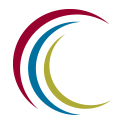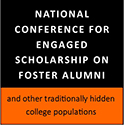
International Forum on The First-Year Experience
Join us for the 1st Biennial International Forum on The First-Year Experience, Feb. 20, 2020 in Washington, DC.

Join us for the 1st Biennial International Forum on The First-Year Experience, Feb. 20, 2020 in Washington, DC.

This conference, February 19-20, 2020 in Washington, DC, will bring together diverse researchers in higher education, social work, and other fields to consider current research and to form interdisciplinary research teams.
Christina Hardin, Editor, E-Source for College Transitions, National Resource Center for The First-Year Experience and Students in Transition
Jenny Lee, Instructor of Academic and Professional Skills, Florida Polytechnic University
Assessment to ensure student learning is taking place is a critical part of an FYE Program. Adhering to data-driven, student-centered assessment practices is crucial in developing, redefining, and implementing a program of study for first-year students. This session will include a discussion of developmental theories in learning and assessment, and will include an interactive participant review of example student data collection and evaluation practices. Participants will leave this session equipped to evaluate their own FYE assessment plans, programs, courses, and co-curricular activities to ensure they are meeting the needs of their unique and changing first year students.
Catherine Andersen, Vice Provost, University of Baltimore
Fiona Glade, Assistant Provost Undergraduate Education and Executive Director of the Center for Learning, Teaching and Technology, University of Baltimore
Carey Miller, Director First-Year Experience, University of Baltimore
Michael Jones, First-Year Advisor, University of Baltimore
Regardless of the size, type or geographic location of an institution of higher education, or whether a students in a first-time freshman or transfer student, one measure of effectiveness is the percentage of students who begin and subsequently graduate. When one understands the unique input variables students bring to an institution and understand and track their specific paths, intervention plans based on sound assessment data that lead to real improvements, can be developed. This session will review the most current student retention data, and address the multitude of variables that become barriers for student success and identify and design interventions along students’ unique paths to graduation. In addition, participants will do a SWOT (Strengths, Weaknesses, Opportunities and Threats) for their own institutions and develop a preliminary action plan, using the first-year as the catalyst, to address their institutions’ retention issues.
Wayne Jackson, Director of Multicultural Academic and Support Services, University of Central Florida
Tony Davis, Counselor, Montgomery County Community College
This session will address the trends of retention and graduation of multicultural male students at colleges and universities across the country. We will investigate why rates are so low and what can be done in order to stem the tide of males not graduating with their degree.
This session will also provide participants the opportunity to begin the work of designing new programs and initiatives to address the retention and persistence of African American and Hispanic males on their campus. This session will particularly benefit those who are interested in implementing or improving the retention and graduation rate of multicultural males.
Michele Campagna, Assistant Dean, Learning Initiatives & Success, Westchester Community College
Joe Cueso, Professor Emeritus, Marymount College
FYE programs can play a pivotal role in implementing Guided Pathways models at 2-year and 4-year institutions. FYE's emphasis on proactive, intrusive, holistic support that integrates curricular and co-curricular programs (e.g., academic advising and career counseling) aligns nicely with the four pillars of the Pathway's model: clarifying pathways for students, helping students choose a pathway, enabling students to stay on a pathway, and ensuring student learning. This workshop will demonstrate how FYE programming can support the goals of Guided Pathways to create a synergistic effect on student success. Participants will be equipped with an implementation plan and supporting resources.